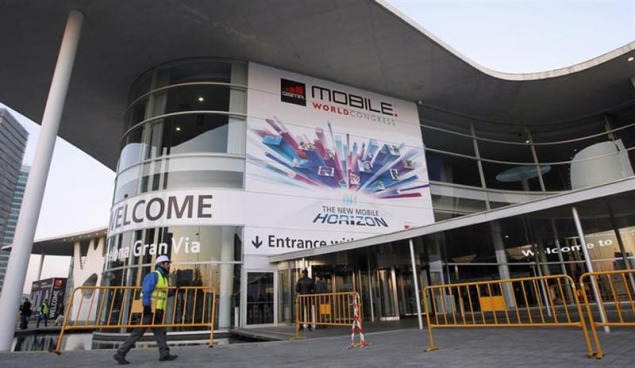- Home
- Telecom
- Telecom News
- MWC: Divide between European and US telcos widens
MWC: Divide between European and US telcos widens

A overcrowded market, tough regulations and recession are hampering European telcos' ability to invest in faster networks, increasing the risk that the region's flagging economy falls further behind the United States and parts of Asia.
As a result, a transatlantic gap in company valuations has opened to its widest since 2008, with European telco stocks now trading at roughly 9.9 times earnings against 17.6 times for U.S. peers.
The gap reflects differences in the competitive landscape. Europe has about 100 mobile firms to the United States' six, as well as harsher rules that have sapped profitability and contributed to four straight years of revenue decline.
And it has real world consequences. As investors' confidence in them wanes, European telcos find it harder to raise or borrow money and become increasingly wary of funding network upgrades that take years to pay off, but are vital to economic growth.
"If it were just a valuation gap of 5 percent it wouldn't really matter, but when it is so large, it does have serious consequences," said France Telecom Chief Financial Officer Gervais Pellissier in an interview.
"If European operators don't get their financing capacity back and regain higher stock market valuations, investment in networks may be lower than many would wish."
To keep up with the smartphone and tablet computer boom, global carriers must invest $800 billion in their networks through 2016, according to trade group GSMA, notably on fourth generation (4G) mobile technology and fibre broadband that offer up to ten times faster internet speeds.
While U.S., Japanese, and South Korean telcos invest heavily in networks, Europe's players have been struggling to pay off debts as their ability to generate cash is hit by fierce competition. As a result, they are building 4G and fibre broadband only slowly, leaving swathes of Europe poorly covered.
The situation has led many European telco executives to lobby the European Union for a more benign approach to mergers and acquisitions and regulations on, for example, call charges.
Europe's top technology regulator Neelie Kroes supports consolidation to create a handful of strong cross-border telecom leaders. But European antitrust watchdogs led by competition commissioner Joaquin Almunia have been cold on such deals over fears they will raise prices for consumers.
The valuation gap could even make European telcos acquisition targets for U.S. and Asian rivals, a tough pill to swallow for proud, former state-backed monopolies that build key national infrastructure.
However, the heavy losses faced by Mexican tycoon Carlos Slim since he bought stakes in Dutch group KPN and Telekom Austria suggest foreigners must tread carefully before bargain shopping in Europe.
Across the pond
In the United States, Verizon Wireless and AT&T control 70 percent of the mobile market and their virtual duopoly has allowed them to grow sales and profits, avoiding the fate of European peers to become investor darlings.
As they have upped investment to build faster 4G networks, they have secured higher prices from consumers increasingly addicted to smartphones from the likes of Apple and Samsung.
Their financial performance last year is the stuff of dreams for Europe's operators. Verizon grew mobile revenues by 7.7 percent last year on a margin of 46.6 percent, while AT&T mobile sales grew 5.7 percent on a margin of 39.6 percent.
In contrast, Europe's biggest mobile operator Vodafone saw its revenue dip 0.4 percent in the first half of its current fiscal year, and its operating margin was 30.5 percent.
The two smaller U.S. players - Sprint Nextel and T-Mobile, a unit of Deutsche Telekom - have some 30 percent of the market, but are far from matching the two leaders' network quality or profitability. That could change if the market gets more competitive after Japan's Softbank bought about 70 percent of Sprint last year. T-Mobile USA is also in the process of buying smaller rival Metro PCS.
Average revenue per U.S. mobile user (ARPU) has grown 25 percent to $49 (39.24 euros) since 2007, according to Sanford Bernstein. In Europe, ARPU has fallen 15 percent to 24 euros.
To cope with lower sales, Europe's telcos have cut costs, But that has not improved profits because prices keep falling. The sector index dropped more than 8 percent in 2012, making it the region's worst-performer.
For Bernstein analyst Robin Bienenstock the problem is European telcos have no confidence that investing in networks to offer superior service than rivals will pay off.
"So they don't invest, they just cut costs and tweak pricing, locking themselves in a vicious cycle of selling an increasingly commoditised service," she said.
"If you are an American consumer, especially in a big city, there has been a tangible improvement in what you're being offered on mobile speeds, whereas for Europeans, there has been a deterioration in quality."
Targets
If the valuation gap persists, it could open the door to outside companies looking for bargain acquisitions in Europe.
AT&T, for example, has signalled it would look for opportunities to expand in Europe, although people familiar with its thinking said no decisions had been made on such moves.
Verizon Communications CEO Lowell McAdam, meanwhile, said last month it was "feasible" to achieve a long-held goal to buy out the 45 percent of Verizon Wireless owned by Vodafone, though it is unclear whether Vodafone would want to cash in on all or part of a stake that is a rich source of revenue.
Carlos Slim's experience, however, shows the risks of dealmaking in Europe. The founder of America Movil spent 3 billion euros to invest in KPN and Telekom Austria, only to see the value of his investments plummet.
European telco bosses are likely to sound the alarm when they see regulator Neelie Kroes at the Mobile World Congress in Barcelona on Tuesday.
"The European industry should look very carefully at the American model and more seriously ask ourselves why there is such a successful model for customers, shareholders and governments that we seem not to be able to replicate," Vodafone CEO Vittorio Colao recently told the Wall Street Journal.
Few expect things to change quickly though. "From a European perspective, I have little hope that the valuations will improve as long as there is no change to the regulatory environment or the macroeconomic environment," said Heinrich Ey, director of research at Allianz Global Investors.
© Thomson Reuters 2013
Get your daily dose of tech news, reviews, and insights, in under 80 characters on Gadgets 360 Turbo. Connect with fellow tech lovers on our Forum. Follow us on X, Facebook, WhatsApp, Threads and Google News for instant updates. Catch all the action on our YouTube channel.
Related Stories
- Samsung Galaxy Unpacked 2025
- ChatGPT
- Redmi Note 14 Pro+
- iPhone 16
- Apple Vision Pro
- Oneplus 12
- OnePlus Nord CE 3 Lite 5G
- iPhone 13
- Xiaomi 14 Pro
- Oppo Find N3
- Tecno Spark Go (2023)
- Realme V30
- Best Phones Under 25000
- Samsung Galaxy S24 Series
- Cryptocurrency
- iQoo 12
- Samsung Galaxy S24 Ultra
- Giottus
- Samsung Galaxy Z Flip 5
- Apple 'Scary Fast'
- Housefull 5
- GoPro Hero 12 Black Review
- Invincible Season 2
- JioGlass
- HD Ready TV
- Laptop Under 50000
- Smartwatch Under 10000
- Latest Mobile Phones
- Compare Phones
- OPPO A6v 5G
- OPPO A6i+ 5G
- Realme 16 5G
- Redmi Turbo 5
- Redmi Turbo 5 Max
- Moto G77
- Moto G67
- Realme P4 Power 5G
- HP HyperX Omen 15
- Acer Chromebook 311 (2026)
- Lenovo Idea Tab Plus
- Realme Pad 3
- HMD Watch P1
- HMD Watch X1
- Haier H5E Series
- Acerpure Nitro Z Series 100-inch QLED TV
- Asus ROG Ally
- Nintendo Switch Lite
- Haier 1.6 Ton 5 Star Inverter Split AC (HSU19G-MZAID5BN-INV)
- Haier 1.6 Ton 5 Star Inverter Split AC (HSU19G-MZAIM5BN-INV)

















